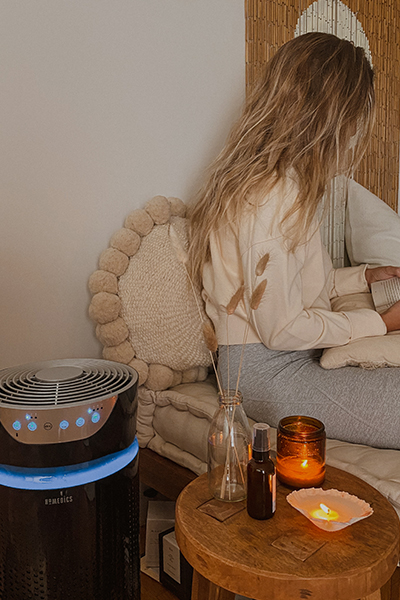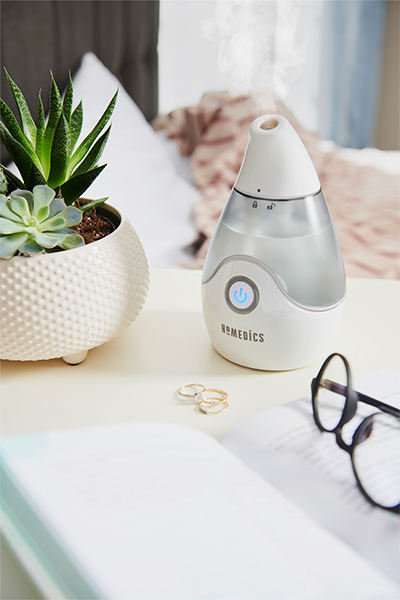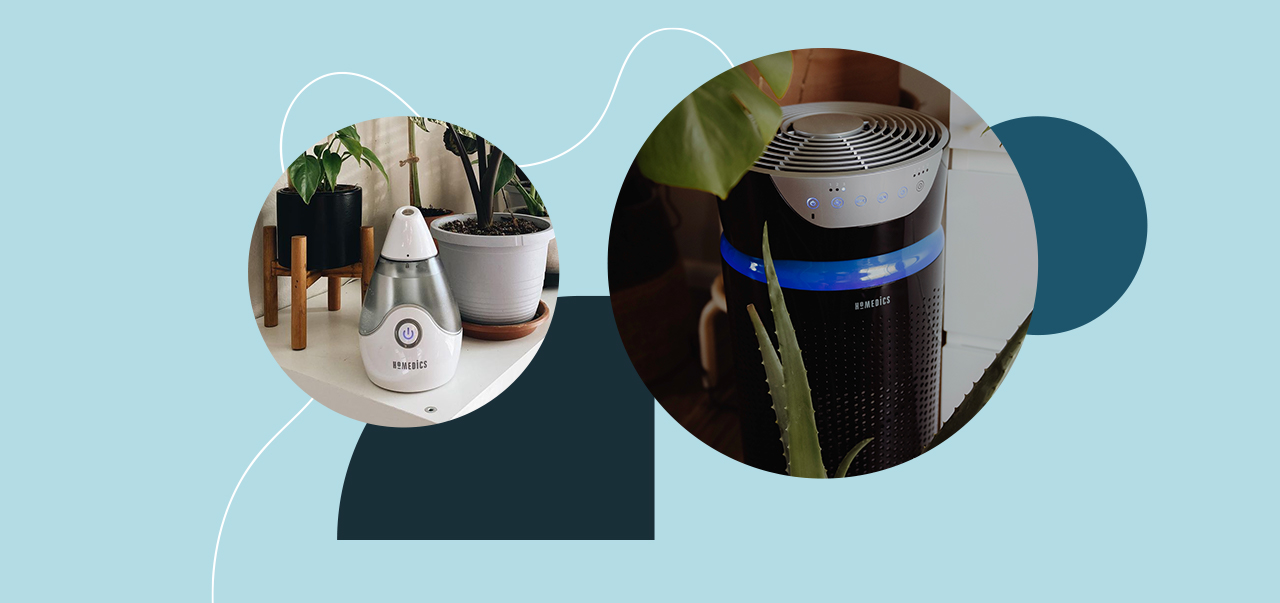Your Year-Round Defense Against Allergens
Everyone loves something about winter. Whether it’s celebrating the holidays, time with family, freshly fallen snow, or nights by the fire, there’s something for every personality to enjoy. That’s why it’s surprisingly easy to overlook things like flu season, seemingly incurable dry skin and hair, and other sources of discomfort that come during the wintry months.
In fact, dry air is more than just a source of discomfort, and the havoc it wreaks on your health can’t just be cured with a little extra moisturizer. Dry air holds bacteria and viruses (like the flu) longer than air that has more humidity. It also dries out your mucus membranes, which typically contain the mucus that is your body’s defense against airborne illness. Unfortunately, dry nasal passages mean you’re much more susceptible to catching a cold or worse this winter.
Besides sickness, the impact of dry air on allergies is another common wintertime problem. Allergies are extremely common in the United States, affecting over 50 million people every year. The irritation of a slight runny nose is annoying enough, but when allergies intensify, allergy symptoms can feel more like a full-blown illness.
Low humidity levels in your home can exacerbate allergy symptoms in anyone, regardless of whether they have a history of allergies. By neglecting to fix a dry air problem, you could end up with a multitude of unpleasant symptoms like:
•Runny nose
•Stuffy nose
•Cough
•Shortness of breath
•Fever
•Rash
•Fatigue
•Headache
•Nausea

If spending days miserable on the couch doesn’t sound like your cup of tea, fortunately, there’s an easy solution for dry air in your home: a new humidifier. Many people don’t realize how many different types of humidifiers are available to consumers. Evaporative humidifiers are a good option for increasing the humidity in a room, but they’re not as suited to everyday use as ultrasonic humidifiers. While evaporative humidifiers use fans to propel moisture through a filter, ultrasonic humidifiers utilize ultrasonic vibrations to create a fine cool (or warm) mist. Ultrasonic humidifiers are also a great choice because, unlike common evaporative models, there’s lower risk of expelling too much moisture into the air. They can also humidify multiple rooms at once, while an evaporative model usually only has the range to keep one room comfortable.
We carry a great range of ultrasonic humidifiers, such as our Personal Ultrasonic Humidifier. A smaller model like this one is great for travel or smaller spaces like dorms where air quality is a concern. For those who have a bit more space to cover, a model like the TotalComfort® 2-in-1 Warm and Cool Humidifier provides maximum coverage with a 360-degree nozzle and 3 different mist settings, all while barely making a sound. Plus, this model has a built-in essential oil diffuser, so you can breathe in calming scents like lavender while your humidifier provides some much-needed allergy relief. Our humidifiers are also modern and sleek, so you can leave the unit out even when you have guests over.
While dry air can be a serious barrier to feeling your best, too much humidity can have a negative impact on allergies as well. This isn’t much of an issue with ultrasonic humidifiers, especially with models that actually track and adjust to the humidity levels in your home. However, depending on several factors —including climate in your area and the season —too much humidity can be almost as problematic as dry air.
Where dry air exacerbates allergy symptoms, high humidity can increase the presence of dust mites and other humidity-seeking allergens (like mold) in your home. Much like dry air, there is a simple solution: an air purifier. Air purifiers do exactly what they claim, removing mold spores, dust, and other allergens from your home using a fine filter.

Air purifiers come in a variety of sizes and models for different spaces. For a smaller space (roughly 124 square feet), a unit like the TotalClean® Desktop Air Purifier is ideal. When tested, it removed 99% of airborne allergens including dust and mold spores, and improved the smell of the room with its carbon odor filter. In a larger room (up to 246 square feet), the TotalClean®5-in-1 UV Large Room Air Purifier works to reduce airborne allergens and has the same carbon odor filter as the desktop model. This unit also monitors the air quality in a given room and adjusts accordingly, has a UV light to reduce germs, an essential oil slot, and 4 speeds, making sure all of your air-quality needs are covered.
Ultimately, the product necessary to clean your indoor air really depends on the characteristics of your environment. But one thing is certain: you don’t have to suffer from allergies in your own home. Using a humidifier or air purifier is an easy way to make your living environment more comfortable and healthier for you and your loved ones.
Medical Disclaimer: This content is provided for informational purposes only and not intended to be a substitute for professional medical advice, diagnosis or treatment.

